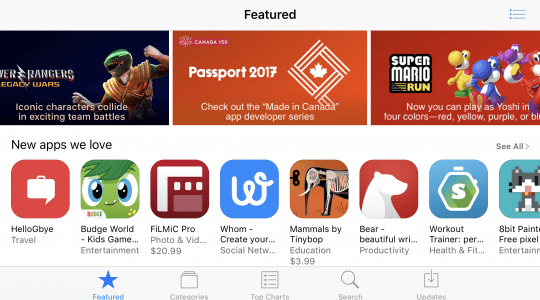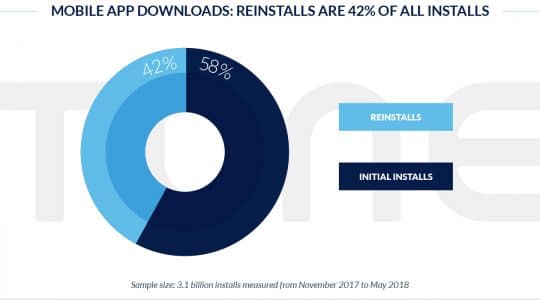Editor’s Note: This is a guest post about how the principles of ASO can be used to expand your marketing into events and conferences. It’s a bit of a switch from our norm and we hope you like it! All opinions are the author’s alone. Leave a comment and let us know what you think.
The trade show floor is a bit like the app stores. Just as each search result page has specific content, exhibitors set up booths to present specialized offerings. Just as users query the app stores to find apps, attendees wander from booth to booth to find companies that meet their needs.
Events therefore need a solution like ASO. It should be easier for exhibitors to attract the “right” attendees – the attendees who will benefit most from their services. Nor should it be a struggle for attendees to find the booths that sell exactly what they’re looking for.
Mobile apps are starting to provide these kinds of targeting capabilities. Apps like Bloodhound display networking suggestions and help exhibitors capture sales leads. Tablet apps like Lettuceapps and Stitchlabs automate the shipping process. By streamlining the logistics of networking, these tools make targeting easy and efficient.
However, gaining traction for these apps in the event industry is tough. People plan their events on the web, but they usually search for apps from their phones.
That’s why bringing the online world into to the offline world of events requires some top-notch ASO by developers, paired with new search techniques by event organizers and exhibitors. Developers for all kinds of professional apps can learn from this challenge.
What ASO Can Learn from Events
Here are tips to keep in mind for your ASO:
- Understand your audience. Hone in on the terms people are using to search. Take your keyword research to the next level by understanding the most commonly used language.
- Keep tradition in mind. People are resistant to change, so make sure your app fits into the current context of the industry.
- The app is an accessory. Although we spend hours a day conceiving of the perfect app and bringing it to life, many of our users may not give tech much thought. To design something that meets their needs, make the app as easy to use as possible.
For those of us searching in the app store, we need to make our searches smart:
- Use the technical name. What you need might be “business card scanning,” but in the context of events, “lead retrieval” is probably more appropriate. Put yourself in the developer’s shoes when you pick search terms.
- Keep it to keywords. Don’t search for long phrases, which may eliminate useful apps from the results.
- Scroll, scroll, scroll. It’s tempting to stick to the first two or three options that pop up in the results page. But sometimes, it pays to be patient and flip to page five or six.
What Events Learn from ASO
Everyone can use ASO as a philosophy to network more effectively at events. One important ASO rule is to always remember the essential message you want to communicate. Exhibitors who focus on presenting the most important elements of their business will attract the leads best suited to their products.
For those of us browsing the app store, we rely on ASO instinctively every time we put a keyword search into the search box. We isolate the words that best describe what we’re looking for, and then we scan the results for those terms to choose what content to read. Likewise, if you attend the event with your goals defined – knowing what you are looking for – finding it and learning more will be much easier.
Mobile Searching in Business
Everyone in the B2B industry is going to become increasingly accustomed to mobile searching. Not only does taking events mobile save on resources – organizers don’t print booklets that end up in the trash, and exhibitors don’t shell out thousands on clunky badge scanners – but it also makes them more valuable for building business relationships.
By streamlining the process with a mobile device, all the clutter vanishes to make room for the conversations.
Author
Becky is the Senior Content Marketing Manager at TUNE. Before TUNE, she handled content strategy and marketing communications at several tech startups in the Bay Area. Becky received her bachelor's degree in English from Wake Forest University. After a decade in San Francisco and Seattle, she has returned home to Charleston, SC, where you can find her strolling through Hampton Park with her pup and enjoying the simple things between adventures with friends and family.




Leave a Reply
You must be logged in to post a comment.